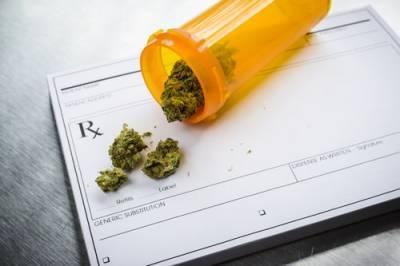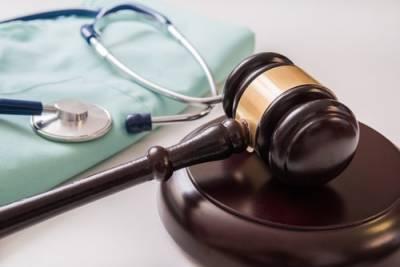Recent Blog Posts
When Can a Medical Provider Be Excluded by the State or Federal OIG?
 In Illinois, medical providers such as physicians, nurses, medical offices, and hospitals must adhere to strict ethical and legal standards in order to keep their licenses and ensure that they can continue to provide quality care to their patients. There are a variety of situations where state and federal government organizations may investigate a provider based on patient complaints or allegations of abuse or fraud. These investigations are often performed by the Office of Inspector General (OIG), and the state or federal OIG may decide to exclude a medical provider from participating in Medicare, Medicaid, and other federally funded healthcare programs. By understanding the possible reasons for an exclusion, providers who are facing investigations can take the necessary steps to defend their licenses and avoid disciplinary action that could affect their ability to continue practicing.
In Illinois, medical providers such as physicians, nurses, medical offices, and hospitals must adhere to strict ethical and legal standards in order to keep their licenses and ensure that they can continue to provide quality care to their patients. There are a variety of situations where state and federal government organizations may investigate a provider based on patient complaints or allegations of abuse or fraud. These investigations are often performed by the Office of Inspector General (OIG), and the state or federal OIG may decide to exclude a medical provider from participating in Medicare, Medicaid, and other federally funded healthcare programs. By understanding the possible reasons for an exclusion, providers who are facing investigations can take the necessary steps to defend their licenses and avoid disciplinary action that could affect their ability to continue practicing.
How Can Pharmacists Protect Their Rights in a DEA Raid?

Pharmacists are responsible for ensuring that medications are dispensed safely and appropriately. When pharmacies dispense controlled substances to patients, they may face scrutiny by the Drug Enforcement Administration (DEA). If the DEA believes that a pharmacy has engaged in drug diversion, it may perform an investigation, or DEA agents and other law enforcement officials may even conduct a raid of a pharmacy in order to uncover evidence of wrongdoing. In these situations, pharmacists may be unsure about the steps they can take to protect themselves, their rights, and their businesses. By understanding what to do before, during, and after a DEA raid, pharmacists can take steps to avoid serious consequences that could affect their DEA registration, their pharmacy licenses, and their ability to continue operating.
Addressing Licensing Issues Related to Medical Marijuana in Illinois

The legalization of medical marijuana in Illinois has been a huge boon to patients seeking relief from various ailments. However, there are certain licensing requirements that must be fulfilled before any person is allowed to legally purchase and use cannabis. Doctors, nurses, or other medical providers who prescribe medical marijuana will need to be sure to abide by all applicable laws and regulations. Failure to do so could not only affect their ability to prescribe the necessary medications to patients, but it could even result in discipline to a medical license or other consequences.
Illinois Medical Cannabis Law
Under the Compassionate Use of Medical Cannabis Program Act, individuals looking to purchase medical marijuana must obtain a valid medical cannabis registry identification card from the Illinois Department of Public Health. This card will be issued only after an individual has satisfied all of the requirements set forth by the law and has provided the necessary documentation—including a valid driver's license or state ID card—to prove their identity. It should also be noted that patients who are under the age of 18 may still qualify for a medical cannabis card if they have consent from a parent or legal guardian.
Can an Expert Witness Help Me in My Disciplinary Hearing?
 The United States is a notoriously litigious society, and despite the crucial work that doctors, nurses, pharmacists, and other healthcare workers do, they are at constant risk of lawsuits and investigations. The Illinois Department of Financial and Professional Regulation is frequently involved in these cases and their investigations can be ruthless and invasive. Those being investigated are frequently left wondering if they will have to defend themselves against baseless allegations with only their own testimony to assist them. Fortunately, expert witnesses may be able to help. Attorney Joseph Bogdan regularly serves as an expert witness for pharmacists being investigated by IDFPR, and can serve as a witness for a variety of other medical professionals as well. If you are being investigated, do not take chances with your professional license and reputation. Read on to learn more.
The United States is a notoriously litigious society, and despite the crucial work that doctors, nurses, pharmacists, and other healthcare workers do, they are at constant risk of lawsuits and investigations. The Illinois Department of Financial and Professional Regulation is frequently involved in these cases and their investigations can be ruthless and invasive. Those being investigated are frequently left wondering if they will have to defend themselves against baseless allegations with only their own testimony to assist them. Fortunately, expert witnesses may be able to help. Attorney Joseph Bogdan regularly serves as an expert witness for pharmacists being investigated by IDFPR, and can serve as a witness for a variety of other medical professionals as well. If you are being investigated, do not take chances with your professional license and reputation. Read on to learn more.
Medical Providers Can Face License Sanctions From Insurance Audits
 Few things can arrive in the mail that physicians and other healthcare providers dread more than a letter announcing an insurance audit. Whether this is from a private health insurance company or Medicaid/Medicare, audits mean a lot of paperwork, deadlines, and other bureaucratic complexities are in the future. Even a physician who believes herself to be in full compliance with proper billing procedures may be surprised to find that mistakes have been made - and if there are enough mistakes, that there could be serious professional consequences. Having the help of an Illinois professional license defense attorney can make all the difference in the outcome of an audit case, so do not wait to secure legal representation if you are going to be audited.
Few things can arrive in the mail that physicians and other healthcare providers dread more than a letter announcing an insurance audit. Whether this is from a private health insurance company or Medicaid/Medicare, audits mean a lot of paperwork, deadlines, and other bureaucratic complexities are in the future. Even a physician who believes herself to be in full compliance with proper billing procedures may be surprised to find that mistakes have been made - and if there are enough mistakes, that there could be serious professional consequences. Having the help of an Illinois professional license defense attorney can make all the difference in the outcome of an audit case, so do not wait to secure legal representation if you are going to be audited.
Be Prepared - Tips For Protecting Yourself in an Audit
Because of the significant risk of being audited, and the potentially harsh consequences associated with inconsistent or fraudulent insurance records, the Physicians Advocacy Institute has recommendations for doctors and other medical practitioners to protect themselves in an audit. These include:
Do I Need a Lawyer During a Medical Student Remediation Hearing?
 Medical and pharmacy school are long, grueling, expensive processes. Over many years, students are expected to perform under tight deadlines, enormous pressure, and very little sleep. While many students can handle this without serious problems, others may struggle personally or with aspects of the medical education system that can leave them facing student remediation.
Medical and pharmacy school are long, grueling, expensive processes. Over many years, students are expected to perform under tight deadlines, enormous pressure, and very little sleep. While many students can handle this without serious problems, others may struggle personally or with aspects of the medical education system that can leave them facing student remediation.
The prospect of facing remediation can be scary and confusing, and it can be difficult to know what to expect. It can also be difficult to know how much you should advocate for yourself versus leaving the process to the judgment of the remediation panel and simply hoping for the best. If you are in the process of obtaining a medical or pharmaceutical education and facing remediative action, get help from a medical and pharmaceutical student remediation defense lawyer.
Why Do Medical Students Face Remediation?
A student may end up in the remediation process for a number of reasons. These include:
Could My License Be Suspended For Missing Continuing Education Requirements?
 Even after all the effort that doctors, nurses, physician’s assistants, and therapists put into getting educated, credentialed, and approved to practice, they face ongoing hurdles to maintain their ability to practice the healing arts. One of these hurdles is the requirement to maintain continuing education requirements. As the body of research from every field grows and expands, our knowledge about every area of professional practice has the potential to grow and expand accordingly; therefore, licensed medical practitioners of all kinds are required to continue learning about their field.
Even after all the effort that doctors, nurses, physician’s assistants, and therapists put into getting educated, credentialed, and approved to practice, they face ongoing hurdles to maintain their ability to practice the healing arts. One of these hurdles is the requirement to maintain continuing education requirements. As the body of research from every field grows and expands, our knowledge about every area of professional practice has the potential to grow and expand accordingly; therefore, licensed medical practitioners of all kinds are required to continue learning about their field.
Licensed professionals are required to self-report how they are meeting their continuing education requirements; for example, every three years, physicians have to attest to having completed 150 hours of continuing medical education credits before renewing their licenses.
However, from time to time professional licensing boards will randomly choose individuals to audit for a complete verification of the ongoing education. If an audited individual has not truly completed the continuing education or has not kept good records of their compliance, their ability to practice their trade may be compromised.
I Passed the Boards. Why Is My Nursing License Being Denied?
 Getting a nursing license is a major accomplishment; not only does a prospective nurse have to go through years of school, but she must also pass extremely challenging tests and then apply for a license in the state in which she wishes to practice. Unfortunately, even if a student has excellent grades and performs well on the board examinations, she may be surprised to find her nursing license has been denied anyway. If you are in this situation, read on to learn why a nursing license may be denied and how you can get help from a professional license defense attorney.
Getting a nursing license is a major accomplishment; not only does a prospective nurse have to go through years of school, but she must also pass extremely challenging tests and then apply for a license in the state in which she wishes to practice. Unfortunately, even if a student has excellent grades and performs well on the board examinations, she may be surprised to find her nursing license has been denied anyway. If you are in this situation, read on to learn why a nursing license may be denied and how you can get help from a professional license defense attorney.
Prior Convictions
Certain crimes can allow IDFPR to deny an applicant’s license. While disclosed crimes rarely cause this, if the board finds out about an undisclosed crime, they can and will bar someone from getting their license until there is a satisfactory explanation. In a worst case scenario, they may see the lack of disclosure as an attempt to defraud the licensing board rather than an honest mistake. However, certain crimes are an automatic bar from getting a nursing license, including crimes that require registration as a sex offender and certain crimes against children or patients. It is important to have help with the appeals process so you have the best chance of presenting a good explanation for any disclosure mistakes.
Will My Real Estate License Be Revoked for a Criminal Conviction?
 Getting a real estate license in Illinois is no easy feat. In addition to licensing courses, exams, and completing training with a sponsoring broker, there is endless ongoing research into market trends, local housing prices, and government regulations. The threat of losing one’s real estate license because of a criminal conviction or for any other reason could mean years of hard work and personal investment gone to waste. If you are facing sanctions to your professional real estate license, make sure you speak with an Illinois professional license defense attorney right away.
Getting a real estate license in Illinois is no easy feat. In addition to licensing courses, exams, and completing training with a sponsoring broker, there is endless ongoing research into market trends, local housing prices, and government regulations. The threat of losing one’s real estate license because of a criminal conviction or for any other reason could mean years of hard work and personal investment gone to waste. If you are facing sanctions to your professional real estate license, make sure you speak with an Illinois professional license defense attorney right away.
Crimes That Can Trigger Real Estate License Sanctions
Many crimes are serious enough to allow sanctions against a real estate license, and some may even prevent someone from getting their license in the first place. Although the crimes are not limited to those related to real estate, crimes that are connected to real estate in any way are top of the list. These include, but are not limited to:
How Can Healthcare Professionals Use Social Media Safely?
 Several American nurses lost their jobs recently after they posted a video on social media describing the things they dislike about their jobs in labor and delivery. Even after the original posting was deleted, the video continued to make its way around the internet, leaving the nurses who originally posted it with no way to take it back or to get their faces out of the news.
Several American nurses lost their jobs recently after they posted a video on social media describing the things they dislike about their jobs in labor and delivery. Even after the original posting was deleted, the video continued to make its way around the internet, leaving the nurses who originally posted it with no way to take it back or to get their faces out of the news.
This incident highlights the pitfalls of social media use for healthcare professionals, who, while certainly being entitled to their opinions about their job and patients, are at a heightened risk of professional sanctions for sharing those opinions publicly. Experts who advise healthcare professionals on how to use social media wisely have several tips for avoiding behaviors that could potentially open one up to criticism and even professional disciplinary measures.









